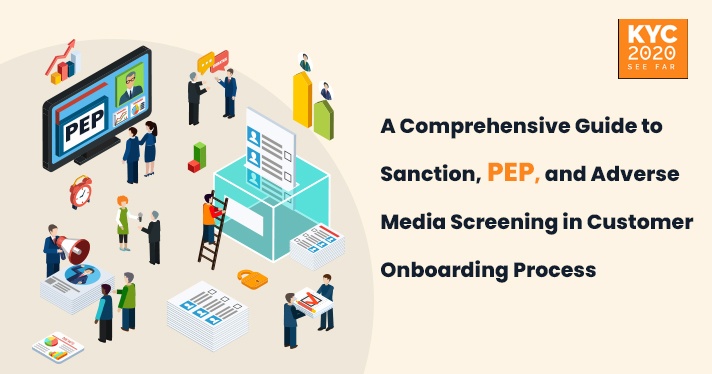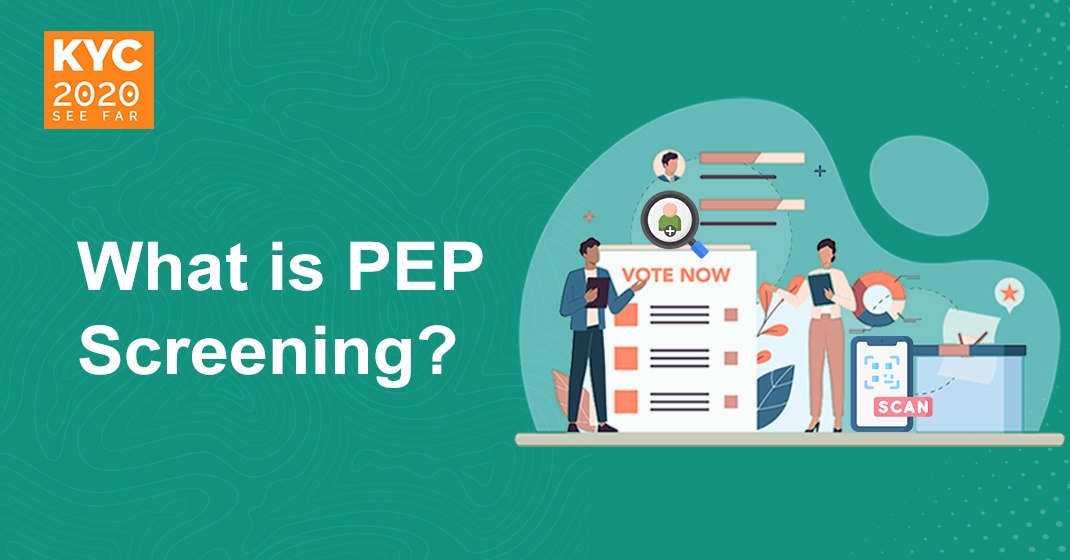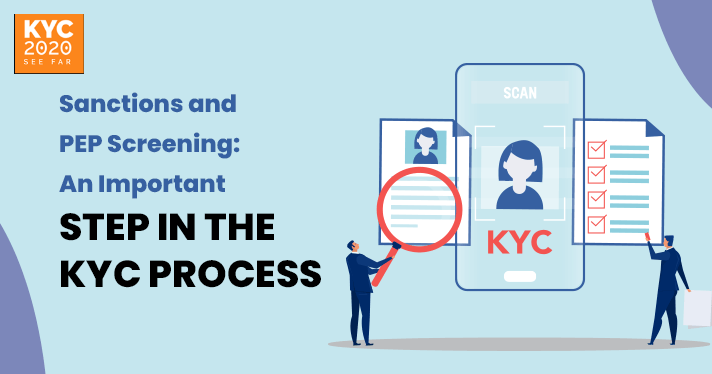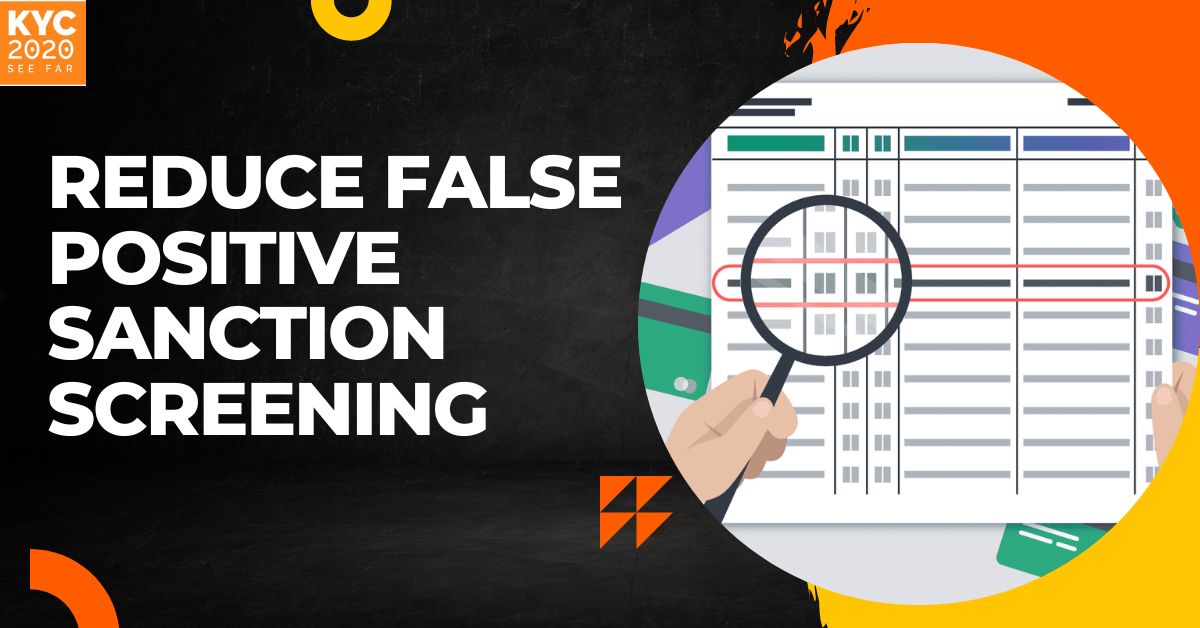After increasing the role of cyber threats, the globalized business landscape of financial institutions and businesses must prioritize risk management to protect themselves against money laundering and terrorist financing. If not done timely, it can cause reputational damage, eventually affecting ROI.
The initial part of implementing risk management strategies is customer onboarding which must involve screening for Sanctioned Individuals and Entities (SIEs), Politically Exposed Persons (PEPs), and adverse media. In this comprehensive guide, we mention the importance of screening, explore the world of Adverse Media, Sanctions, and PEP screening, and offer insights into implementing effective screening techniques for enhanced risk mitigation.
Understanding the Importance of Screening in Customer Onboarding
Why is Screening Essential?
In an era where financial crimes and reputational risks are rampant, screening customers for PEPs and Sanctions checks is vital. By conducting thorough due diligence, businesses can mitigate financial crime risk, protect their reputation, and ensure compliance with regulatory obligations. Effective screening allows for identifying high-risk customers, assessing their potential involvement in illicit activities, and making informed decisions during customer onboarding.
Compliance and Regulatory Requirements
Stringent regulations, such as Anti-Money Laundering (AML) and Counter-Terrorist Financing (CTF) laws, mandate the screening of customers against SIEs and PEPs. Financial institutions and businesses must comply with these regulations to avoid hefty penalties, legal consequences, and damage to their reputation. Additionally, regulatory bodies often issue sanctions and embargo lists highlighting individuals, entities, and countries involved in prohibited activities. By screening against these lists, organizations can ensure compliance and mitigate risks associated with these sanctioned entities.
Unraveling the World of Sanction, PEP, and Adverse Media
1. Sanction Screening: Identifying High-Risk Entities
Sanction screening involves comparing customer data against official sanction lists, which include individuals, entities, and countries subject to financial and trade restrictions. Governmental bodies, international organizations, and regulatory agencies issue these lists. By implementing an effective sanction screening process, businesses can identify and flag high-risk entities, preventing potentially illegal transactions and safeguarding themselves from legal and reputational damage.
2. PEP Screening: Mitigating the Risk of Corruption
Politically Exposed Persons are individuals who hold prominent public positions or have close associations with such individuals. Due to their elevated positions, PEPs are at a higher risk of being involved in corrupt practices, money laundering, and bribery. Screening customers for PEP checks is crucial in assessing the risk associated with their involvement in illicit activities. Implementing robust PEP screening measures allows organizations to make informed decisions, exercise enhanced due diligence, and safeguard against financial and reputational risks.
3. Adverse Media Screening: Protecting Reputation
Adverse media screening involves monitoring various sources, such as news articles, public records, and social media, to identify any negative or potentially damaging customer information. This screening technique helps protect an organization’s reputation by identifying customers with connections to criminal activities, fraud, or controversial business practices. By conducting comprehensive adverse media screening, businesses can proactively manage their reputation, make informed decisions during onboarding, and safeguard against potential risks.
Implementing Effective Screening Techniques for Enhanced Risk Mitigation
1. Leveraging Technology for Screening
Advancements in technology have significantly improved the efficiency and effectiveness of screening processes. Automated screening solutions powered by artificial intelligence and machine learning algorithms can quickly scan vast databases, identify potential matches, and reduce false positives. Leveraging such technology allows organizations to streamline their onboarding processes, minimize manual errors, and enhance risk mitigation efforts.
2. Conducting Ongoing Monitoring and Periodic Reviews
Screening should not be limited to the initial onboarding process alone. Ongoing monitoring and periodic reviews are essential to ensure existing customers remain compliant and free from new risks. By continuously monitoring customer activities and conducting regular reviews, businesses can detect any changes in risk profiles, identify emerging threats, and take appropriate actions in a timely manner.
Introducing KYC2020 to Streamline Customer Onboarding with Sanction Screening and PEP
KYC2020 is a leading company offering comprehensive Global Watchlist Data, Screening, and Decisioning solutions that can significantly streamline customer onboarding by integrating PEPs and Sanctions checks. With our expertise, we can assist businesses in ensuring compliance with regulatory requirements while efficiently vetting potential customers.
Sanction Screening, a crucial component of KYC2020, allows organizations to identify individuals or entities on global watchlists or sanction lists. Organizations can quickly and accurately screen customers during onboarding by leveraging a vast database of sanctioned individuals. It prevents businesses from engaging in transactions with individuals involved in illegal activities, mitigating financial and reputational risks.
Moreover, KYC2020 includes PEP screening, identifying individuals with prominent public positions or close associations with politically exposed individuals. This screening process helps organizations assess potential risks associated with such customers. By incorporating PEP checks into the customer onboarding workflow, businesses can ensure transparency and integrity, preventing potential involvement in corruption or illicit activities.
By partnering with KYC2020, organizations can automate the customer onboarding process, minimizing manual effort and improving operational efficiency. The solution seamlessly integrates with existing systems, enabling real-time screening and reducing the risk of onboarding high-risk individuals. It saves time and enhances customer experience by expediting the onboarding process.
Conclusion
Effective screening for Sanctioned Individuals and Entities (SIEs), Politically Exposed Persons (PEPs), and adverse media is critical to customer onboarding. Organizations can ensure compliance, mitigate risks, and maintain high due diligence while welcoming new customers by incorporating PEPs and Sanctions checks. KYC2020 provides businesses with a powerful toolset to streamline customer onboarding with Sanctions and PEP screening. By partnering with us, organizations can enhance risk mitigation efforts, comply with regulatory requirements, and protect their reputation in an increasingly complex and challenging business environment. Contact our experts for further details.








